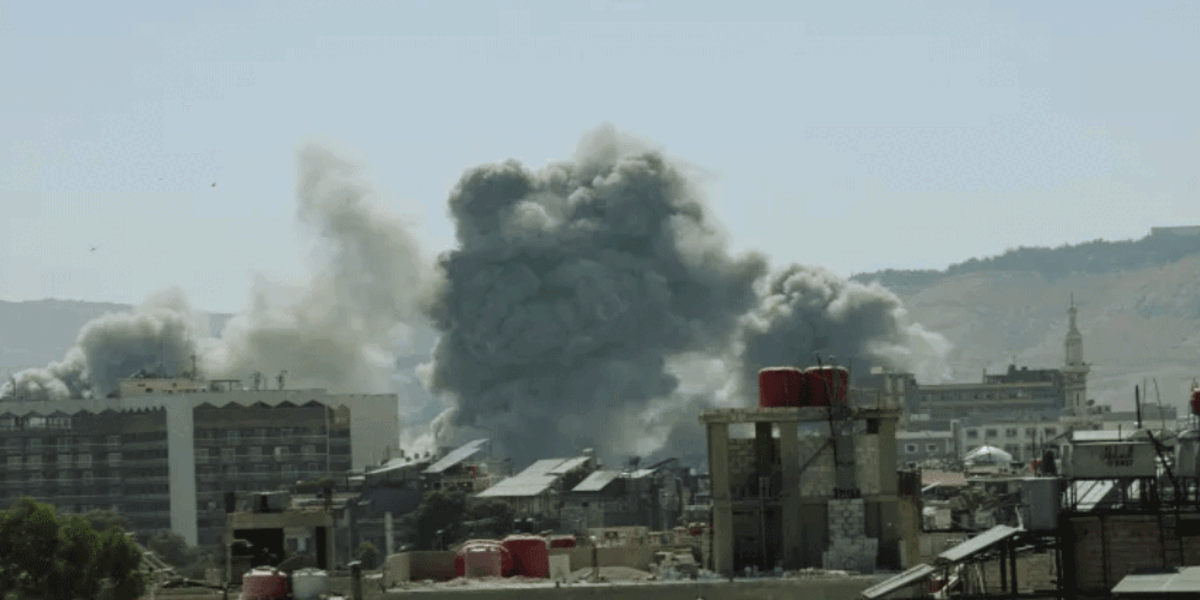In a significant escalation of regional tensions, Israel has launched a major military assault on Syria’s capital, Damascus, while deploying two divisions of troops to the Golan Heights and Syrian border, according to official sources and media reports.
The Israel Defence Forces (IDF) confirmed issuing a warning before targeting the Syrian Presidential Palace, amid unconfirmed reports of casualties resulting from intense airstrikes on multiple locations in central Damascus.
Arab media reported that Israel also bombed the Syrian Defence Ministry building, with upper floors sustaining heavy damage.
The Israeli Defence Minister announced the beginning of “intense and extended military operations” expected to last several days, signaling the potential for a broader conflict. As part of its offensive, the IDF is deploying additional troops and weaponry to the Northern Command to support combat operations and reinforce security along the border.
Read More: FBI Names Iran’s Envoy to Pakistan in Levinson Case
Syria’s state news agency SANA, quoting the Health Ministry, confirmed that at least nine people were injured in the Israeli airstrikes on central Damascus. The full extent of civilian damage remains unclear as emergency services continue operations at targeted locations.
IDF Chief of General Staff Lieutenant General Eyal Zamir has ordered the intensification of operations, citing the need to protect the Druze community in southern Syria, particularly in As-Suwayda (Jabal al-Druze).
The Israeli military says the strikes are aimed at preventing attacks on the Druze population, a minority community that maintains historical ties with Israel. According to IDF sources, new reinforcements are being deployed to the 210th Division’s outposts along the Syrian border.
Read More: Saudi Arabia Ends Mahram Rule for Women Pilgrims
The IDF emphasized that any attempted incursions from Syria will be treated as hostile acts and will be met with immediate force.
The attack marks one of the most aggressive Israeli military actions against Syria in recent years, raising fears of a broader regional conflict. Middle Eastern powers and international observers have called for restraint, with some warning that the situation could spiral into full-scale war if diplomatic efforts fail to de-escalate tensions.


